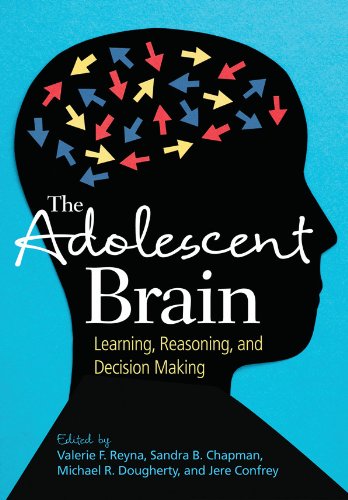Customer Services
Copyright © 2025 Desertcart Holdings Limited
Desert Online General Trading LLC
Dubai, United Arab Emirates


Full description not available
R**E
Great product!!!
Just what I needed to enhance my profession.
J**P
Very generic and expensive textbook that can be.
Not sure why any self respecting individual will be willing to charge more than 1 cent for this compendium of trite generalities and even less so why anyone would even bother to read it unless getting paid. One of these books that professors force on students, the publishers charge exorbitant amounts of money and the authors get a kick out of writing irrelevant musings from a practical perspective as the neuroscience findings error margin is high while their propensity to revert in a few years almost a certainty. I would seriously suggest that the authors explore other venues of distributing research reviews and instead of publishing books that will be outdated in a few years, to offer subscription based services that review and summarize coherently the most current research (the book does this masterfully). Textbooks are meant to offer insight on general principles that never change as well as the specific applications of these principles and how these applications vary. Empirical research findings are important and relevant, but their invariable incompleteness renders them from partially useful to plainly misleading. I see their value as important background knowledge but not at this price point. Something the publisher will have to reconsider.
K**B
Book points to ways to improve teen reasoning, decision making
This is the first book on the adolescent brain and development of higher cognition (the set of thinking skills students use to manipulate information and ideas in ways that lead to problem solving and new insights). The book reviews recent neuroscience discoveries about how the brain develops and their implications for real-world problems, how we teach young people and how we prepare them to make healthy life choices.The book is edited and authored by an interdisciplinary group of leading scientists. You can view the book's Table of Contents and editor bios on the publisher website (APA books).A major implication of the provocative research highlighted in this book is the contrast between adolescents' cognitive skills, which are at a lifetime peak, and their frequent inability to use this competence in everyday decision making. Teenage brains undergo big changes, and they won't look or function like adult brains until well into one's 20s. The authors point to ways to capitalize on this plasticity and improve teen learning, reasoning and decision making."The Adolescent Brain" addresses the major changes in memory, learning and decision making experienced by adolescents as they mature, beginning with a review of the changes in brain anatomy and physiology based on extensive neuroimaging studies. The ensuing chapters examine the developing capacity of the adolescent brain, covering such topics as the underpinnings of intelligence and problem solving, strategies for training teen reasoning abilities, effectively teaching mathematical concepts, the effects of emotion on reasoning, and factors that promote teen engagement in health-related behaviors.The book wraps up with a chapter by editor Valerie Reyna (Cornell University professor of human development) and Christina Chick that integrates the behavioral and neuroscience evidence in a process model of adolescent risky decision making. Chick and Reyna explain, for example, how massive pruning of gray matter in late adolescence fits with the growth of adolescents' ability to connect the dots and understand the underlying meaning of situations. This gist thinking facilitates recognition of danger and protects against unhealthy risk-taking, they say.The book is intended for researchers, students and professionals in the fields of cognitive neuroscience and psychology and for education policymakers and educators, especially in mathematics.
I**L
Stunning rigorous articles
I found this to have contributions from the most important writers on this topic and in proper referenced format. A dense read but even amateurs like myself can understand it, very rigorous and Scientifically correct
G**D
Very useful collection of research so far
Very useful collection of research so far. Shame it focusses more on Maths than language as that is my field of research. That could be made a little clearer from the get go.
Trustpilot
1 day ago
2 weeks ago